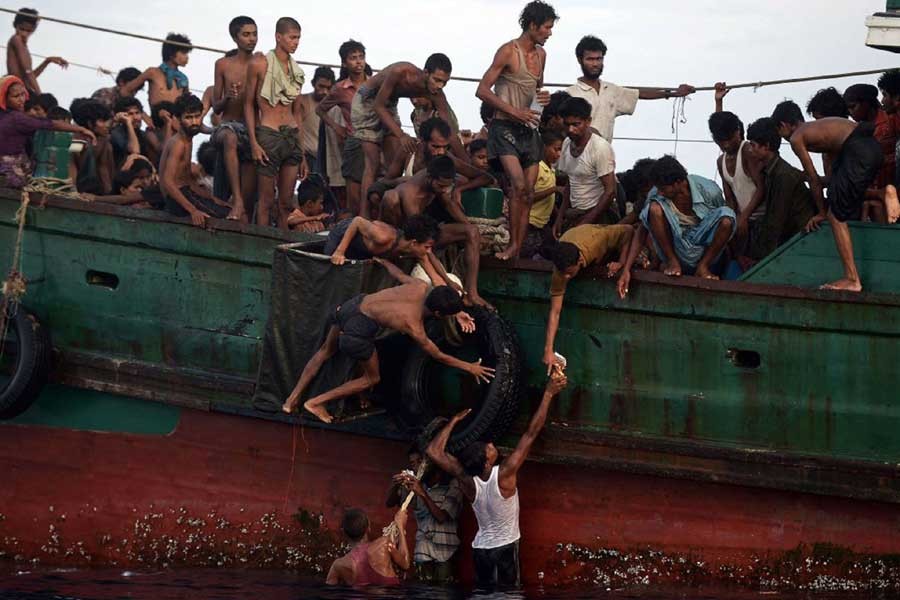With the international concern over the influx of Rohingya into Bangladesh and the thrust on their early repatriation to Myanmar ebbing, the volume of external humanitarian assistance necessary to support the population uprooted from their homeland has also been on the decline. A conference of the donors held on Thursday last pledged nearly $600 million when the UN has estimated the requirement at $1.0 billion this year. Barring a few, including the USA, the UK and the EU, some countries that were highly vocal initially over the Rohingya issue have, apparently, lost interest.
Delegates from as many as 50 countries took part in the virtual conference. But the fact remains that a good number of them are neither making financial contributions to the management of the Rohingya refugees nor highlighting the latter's cause forcefully in the international forums. When the Rohingya issue was taken to the International Court of Justice (ICJ), there was a bit of hullabaloo. But nothing tangible came out of the ICJ proceedings, finally.
In the meanwhile, the Rohingya burden is becoming increasingly unbearable for Bangladesh. The presence of such a huge alien population in a small place has been producing serious economic, social and environmental consequences. Some of those are visible and some are not. The local people have been making lots of complaints. The policymakers too are finding the Rohingya issues very much taxing. The state minister for foreign affairs at the Thursday's donors' conference, thus, vented Bangladesh's frustration over the performance of the UN in matters of Rohingya issue. He said the UN has failed to exert enough pressure on Myanmar to take back its citizens.
Such an accusation is nothing new for the UN. Since its birth, it has been blamed for not doing enough on many issues, bilateral, regional and international. Truth is this body has been the scapegoat for the fault of others---its mighty and influential members. Most of the contentious issues have remained unresolved because these members are not willing to settle those. They take sides for the sake of their own geopolitical or economic interests, which makes the resolution of disputes difficult.
It has also become rather difficult to force Myanmar to take back the Rohingya despite its consent to do so because some influential UN members are not doing enough except for giving lip service. A few others are playing double standards for the sake of their geopolitical interests. But the world must understand the difficulty that Bangladesh, which is now hosting the largest refugee camp on earth, has been experiencing with nearly 0.9 million Rohingya refugees. Many affluent European countries refused to accept even a few hundred Syrian refugees and pushed those helpless people out of their respective territories forcibly. They must understand the plight of Bangladesh.
Bangladesh had demonstrated courage and love for humanity when it allowed more than 0.75million Rohingyas to enter its territory and settle at Cox's Bazaar camps. But the world should not punish this resource-scarce country for being humanitarian. The UN Security Council, Organisation of Islamic Countries (OIC) and relevant other international entities must do whatever is needed to send back the Rohingya with due honour and dignity as citizens of Myanmar. They have to do something more than giving lip service.


